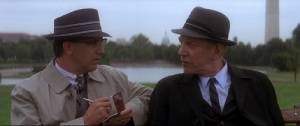The Veteran (2011)
Director: Matthew Hope
Writers: Matthew Hope (screenplay), Matthew Hope (story)
Stars: Toby Kebbell, Adi Bielski and Tony Curran | See full cast and crew
Stars: Toby Kebbell, Adi Bielski and Tony Curran | See full cast and crew
Storyline
A soldier returning from the war in Afghanistan uncovers a conspiracy involving the intelligence services and a gang of drug dealers._________________________
As JG Ballard correctly diagnosed in The Atrocity Exhibition (1970), celebrities are not merely people but symbols and signs. These signs and symbols bind culture together in such a way that, when the celebrity attached to them suddenly dies, the symbol continues to exist simply because of the structural role they play. Dimly aware of the undead symbolic status of these celebrities, humans attempt to account for the cognitive dissonance by either denying that they are dead or by seeking to transform their deaths into important historical moments: Osama bin Laden is simply too important to be shot dead in some Pakistani suburb. 
Our desire to see the world in terms that make sense to us is also evident in our attempts to build theories that account for such random and chaotic events as war. Matthew Hope’s The Veteran explores the idea that, far from being a violent and random convulsion of the body politic, war might actually be a force of nature.
 |
| Film Poster |
Decorated for his heroism in Afghanistan, Miller (Toby Kebbell) returns home to find a boarded-up council estate. While the leaflets on his doormat may speak of ‘community’ and ‘togetherness’, Miller’s home is nothing but a warren of dark corridors populated by drug dealers and those with no place else to go. Desperate to leave the war behind him, Miller tries to find a job in the real world but the only doors open to him are those of the local drug lord Jones (Ashley Bashy Thomas) and that of sleazy intelligence operatives Chris (Tony Curran) and Gerry (Brian Cox). Opting for what he takes to be the lesser of two evils, Miller takes up with the intelligence services and helps them to uncover a series of terrorist cells operating in the London area. Clearly, just when he thought he was out… they pull him back in. Miller’s slow re-absorption by the War on Terror is neatly reflected in the realities of life on the estate.
Miller’s only friend on the estate is Fahad (Ivanno Jeremiah) who is at his wits’ end over his younger brother’s decision to go and work for Jones. Fahad’s concern for his brother is compounded by the fact that his family’s move to London was supposed to keep the brothers from precisely the sort of violent lifestyle that Jones is offering. Much like Miller, Fahad came to London in order to escape war only to realise that it is over here too. The Veteran suggests that while the estate’s turf war and the War on Terror may seem to be quite separate entities, in reality they are merely symptoms of the same larger and more threatening disease. Hope establishes the universality of war by having his characters buy into a series of weirdly unconvincing conspiracy theories:
 |
| Film Poster |
Firstly, Jones attempts to bond with Miller by suggesting that the pair of them are already on the same side. After all, Jones asks, is it not the case that the war in Afghanistan is being waged purely in order to safeguard western access to Afghan poppy fields?
Secondly, Miller’s informer Alayna (Adi Bielski) tries to explain both the nature of the threat and her reluctance to inform on the terrorists by claiming that the CIA, Pakistani intelligence and the Taliban are not only on the same side but are, in fact, all a part of the same thing.
Thirdly, once Miller realises that the British intelligence services have turned a blind eye to a known terrorist cell he confronts his handlers. Gerry responds by explaining that the British state needs the War on Terror in order to continue functioning and so British intelligence is actually serving the state when it decides to turn a blind eye to certain terrorist activities.
All three speeches are reminiscent of such great cinematic moments as Donald Sutherland’s Mr. X speech from Oliver Stone’s JFK (1991), Ned Beatty’s primal forces of nature speech from Sidney Lumet’s Network (1976) and Bob Hoskin’s realisation that he is not just dealing with a bunch of Irish criminals in John Mackenzie’s The Long Good Friday (1979). Moments in which all of history and all of politics are revealed to be part of an elaborate lie that is either foisted onto the public for the purposes of social control or bought into willingly by a population only too eager to avoid the unpleasant sensation of too much reality. Moments best articulated in JFK by the immortal line “We’re through the looking-glass here, people”.




No comments:
Post a Comment